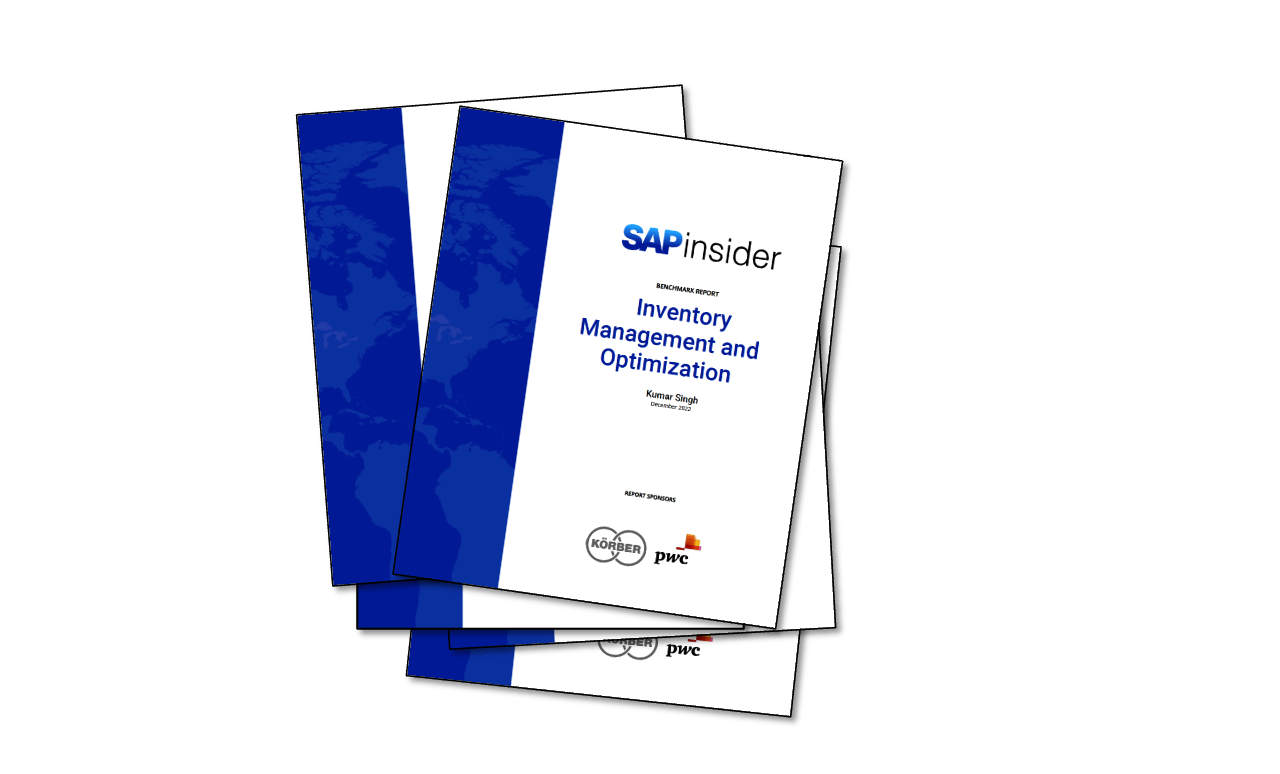Why Continuous Availability is a Must for SAP Users
Key Takeaways
⇨ To run operations smoothly and efficiently, accessing critical inventory data across a variety of locations and during offline interruptions is necessary.
⇨ A continuous availability solution connects remote worksites to one single-source of truth in the ERP and results in total continuity for an organization’s data collection.
⇨ Continuous availability solutions simplify complex and manual routines, giving organizations a better view into their inventory operations.
Inventory management is a cornerstone of supply chain strategy. The ability to gain insights quickly and efficiently from current data and nimbly respond to shifting market demands is critical for the organizations in today’s world. But such agility requires organizations to adopt technology that can support this. Despite this, most organizations have not prioritized acquiring technology that can make them agile. Data from our recent Digital Inventory Report reveals that only 16% of participant organization’s mobile systems are sufficient to meet their current needs, whereas other sources suggest that over 80% of warehouses today have no automation capabilities.
Agility is significantly relevant for organizations with remote locations or field workers. Although organizations with offline data collection issues prefer making self-sufficient sites, these result in efficiency loss and a lack of data synchronization. To run operations smoothly and efficiently, accessing critical inventory data across a variety of locations and during offline interruptions is necessary. That is why continuous availability is vital to the organizations of the future.
Need for Continuous Availability
Explore related questions
Streamlined continuity across the enterprise, regardless of the connectivity state, allows visibility and the ability to move and distribute inventory as needed. A continuous availability solution connects remote worksites to one single-source of truth in the ERP and results in total continuity for an organization’s data collection.
Continuous availability technology is defined as an approach, system, or component that enables continuous operation for long periods of time and protects users against any type of downtime. Such technology safeguards the workers and enables them to continue scanning and processing warehouse inventory if ERP goes offline or SAP cloud service is unavailable in the event of any downtime.
If the connection to SAP is interrupted, a continuous availability solution like one by RFgen starts working locally off the replicated data, stores all the mobile transactions and syncs back up with SAP as soon as the connection to SAP is restored.
Benefits of using continuous availability technology include:
- Inventory management through barcode scanning and automated data collection when offline.
- Streamlined data management collection from multiple sources.
- Uninterrupted core warehouse operations in case of disrupted connections.
- Robust and intelligent distribution solutions utilization that goes beyond simple ‘store-and-forward’ methods.
Managing Offline Inventory Data
For some organizations, delivery, transport and multiple locations complicate inventory management and the need for high quality data. For example, companies with delivery drivers who go in and out of network range may have valuable information stored on individual devices or companies that perform maintenance operations in remote field locations may have trouble tracking inventory on the road.
This results in an inability to access real-time data to perform tasks, lost scan data, and manual data entry by workers. Mobile inventory solutions with offline data capabilities can help in timely and accurate inventory data.
Lack of End-User Interruption
Warehouses cannot control poor or nonexistent wireless or cellular connections. Organizations lose large quantities of connected data and spend hours recounting material if such connections are disrupted. Eventually this adds up to a substantial loss in productivity and a glaring lack of data accuracy.
For example, dropped or lost connections for CyberCore Technologies meant they were doing 30% of their work twice. By implementing an offline mobile data collection solution with continuous availability like RFgen, scanned data was automatically saved in a handheld device even without a connection.
Streamlined Data Management
Prioritizing data collection across the entire organization can drive strategic business decisions but this is only possible if data is up-to-date and accessible.
Choosing the right data collection software that enables mobile data collection technology allows the data flow from each location into one business critical information system. This vital data capture fuels a company’s ERP and gives a consistent overview of inventory and supply chain flows at each location.
Streamlining data approaches can reduce complexity and the overall burden on the IT departments that have to deal with large quantities of disparate information. A system that employs advanced replication techniques, intelligent queuing, and light-coupled architecture helps reduce costs and significantly increases system uptime.
RFgen recently worked with a manufacturer with unreliable data collection processes that were causing workflow issues. By transitioning to a streamlined and automated data collection software, the company was able to see immediate benefits from increased productivity and data accuracy during cycle counting. In addition, with trusted and reliable offline data collection, data drops were efficiently and quickly resolved.
Continuous Availability in Action: High Volume Inventory Operations
Continuous availability technology can work for several types of organizations, including those with high volume inventory operations. Graphic Packaging International was producing 1.5 million manufacturing and inventory transactions per month. With increasing product demand and future expansion potential, the company needed a solution that would minimize downtime and integrate seamlessly with their existing ERP.
RFgen Mobile Foundations for SAP helped them collect and dispense data from almost any device, enabling barcode data collection to continue even when SAP was offline. Today, the company has automated data collection across 25 North American sites, unlocking a 25% increase in efficiency and a 30% increase in productivity.
Continuous Availability in Action: Greater Accuracy in an Off-line Environment
Assimilating information is vital for companies even when they operate in a remote environment outside of wireless networks. ForCalifornia Utility Company, this was an everyday reality with several small warehouses spread throughout a 50,000 square mile territory.
Inventory was essential to their business but manual processes, lack of automation, and growing inefficiencies in transportation operations stood in the way of productivity. The company employed light-duty and heavy-duty drivers to move materials and parts around the territory. Yet no automated method existed for recording deliveries in SAP. The result was an inventory nightmare.
California Utility Company worked to implement an SAP-specific solution that could be used without being connected to a network. The system allowed drivers to track where they had been and what was delivered, mitigating the loss of high-value inventory items. As the drivers returned to wireless range, information was uploaded as if it happened in real-time.
The Role of Continuous Availability in a Digital Landscape
While continuous availability can have a significant impact, the benefits are only as good as the organization’s technology. Forward thinking organizations must re-look at traditional approaches to inventory management and data collection. The right warehouse automation software can help digitally optimize outdated, manual processes and drive strategic growth.
Companies that automate warehouse inventory processes have found maximum efficiency at minimal cost. The right automation software can significantly improve warehouse KPIs while minimizing waste. Mobile data collection solutions provide an alternative to full-featured WMS platforms or a robotic automation suite which carry a hefty price tag and long implementation timeline. Integrating barcoding, mobile inventory management, and SAP connectivity can result in improved long-term warehouse efficiencies and cost savings.
Embracing Continuous Availability in Your Organization
Offline data collection is a stark reality for many organizations. Over time, a lack of data integration can lead to significant inventory issues, time wastage, and a loss of resources. Connecting remote workers to ERP is a vital component for optimizing future operations. Through continuous availability solutions, complex and manual routines can become more efficient and simplified, giving organizations a better view into their inventory operations.





